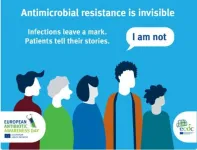(Press-News.org) Climate change is making water scarcer. A promising method to combat this problem is desalination technology because it can tap seawater. Though desalination has potential, it also brings risks with environmental impact, cost, and accessibility. Zero liquid discharge (ZLD) technology aims to increase water recovery from desalination by squeezing more water out of desalination brine. ZLD can help reduce water scarcity and waste from desalination plants, but comes at increased costs and, potentially, increased environmental effects from desalination.
In a new analysis by a team led by Northwestern Engineering’s Jennifer Dunn that uses a novel optimization model, researchers concluded that while incorporating ZLD into desalination plants is a valuable way to fight future water scarcity. The process, however, poses notable tradeoffs when it comes to energy use, disposal of water that has salt, and cost for low-income areas.
In desalination, seawater is filtered through a membrane that removes salts, leaving fresh water and a salty brine. ZLD can increase water recovery from this brine and reduce its volume, leading to more manageable desalination waste streams. While desalination facilities are abundant in countries like Israel, Australia, and Saudi Arabia where water scarcity is acute, the energy required to desalinate water at scale presents a significant environmental hurdle.
Due to the pressure needed to push water through membranes, high energy demand is a considerable obstacle to desalination and ZLD. This demand presents a perplexing cycle — energy production often requires water, and water production from desalination now requires significant energy.
“The big challenge is that you need a lot of energy to desalinate water and increase water production using zero liquid discharge,” Dunn said. “That energy comes at a high environmental cost, especially if fossil fuels are the primary energy source. Renewable energy is being investigated as a cleaner power source, but these options are still limited, depending on location and available infrastructure.”
Dunn is a professor of chemical and biological engineering at the McCormick School of Engineering. She reported her findings in the paper “Analysis of Energy, Water, Land and Cost Implications of Zero and Minimal Liquid Discharge Desalination Technologies,” published November 18 in the journal Nature Water. Dunn directs the Center for Engineering Sustainability and Resilience and is the associate director of the Northwestern-Argonne Institute of Science and Engineering.
In the paper, Dunn and her colleagues evaluated methods to make ZLD more efficient. They did this by using a new optimization model that aids in the design of desalination treatment trains (multiple technologies that work together), including seven different options for treatment trains. This required extensive research on each technology included in an overall process train (series of steps that result in zero liquid discharge). The model, WaterTap, is funded by the US Department of Energy and is led by the National Alliance for Water Innovation.
“ZLD and minimal liquid discharge processes give you more water, which can be crucial in water-scarce areas, but you’re increasing the energy and costs,” Dunn said. “In each plant, decisions need to be made based on the specific location and the resources available. It’s all about trade-offs.”
Brine disposal also poses an environmental issue. Coastal desalination plants often pump the brine back into the ocean. However, the long-term effects of that practice are not yet known. A concern is that brine has more saline than seawater, giving it the potential to disrupt marine life in sensitive areas.
Dunn emphasized that monitoring brine disposal will be essential as desalination becomes more widespread.
“There’s not enough data on the effects of high-salinity brine on marine ecosystems,” Dunn said. “In some areas, the damage may be minimal, but in others, it could be disruptive. We’re working to fill those gaps.”
Desalination is costly, presenting problems for low-income regions that have the biggest issues with water access. Desalination plants are expensive to build, operate, and maintain, and require large amounts of energy. Some countries do provide subsidies for desalinated water; unfortunately, they can be insufficient.
“Desalination can’t be the only solution,” Dunn said. “In some areas, it’s essential, but it must be part of a broader water management strategy.”
Dunn pointed out that several countries are taking a “multi-faceted” approach to address a lack of water by combining desalination with methods such as water recycling, rainwater harvesting, and conservation measures. That mix of techniques has obvious advantages, better preparing communities for unpredictable resources and increasing demand.
"Desalination is crucial in certain regions, but it can’t be the only answer to water scarcity," Dunn said. "To make real progress, we need to look at it as one piece of a broader, more sustainable water management strategy that’s adapted to the unique needs and constraints of each area."
END
Modeling and analysis reveals technological, environmental challenges to increasing water recovery from desalination
Zero liquid discharge technologies can ease water scarcity but at increased cost and energy consumption
2024-11-18
ELSE PRESS RELEASES FROM THIS DATE:
Navy’s Airborne Scientific Development Squadron welcomes new commander
2024-11-18
WASHINGTON — Cmdr. J. Aaron Roberts relinquished command of the U.S. Naval Research Laboratory’s (NRL) Scientific Development Squadron (VXS) 1, the Warlocks, to Cmdr. Luis A. Levine, the new Commanding Officer (CO), during a change of command and retirement ceremony Nov. 14 at Naval Air Station (NAS) Patuxent River, Maryland.
NRL’s CO Capt. Jesse Black presented Roberts with the Meritorious Service Medal. Roberts served as the VXS-1 CO from May 2023 to November 2024 and the U.S. Navy for 21 years. Black said Roberts’ distinguished leadership was instrumental to the squadron’s continued record of exceptional support to NRL’s airborne ...
TāStation®'s analytical power used to resolve a central question about sweet taste perception
2024-11-18
PHILADELPHIA, PA – November 18, 2024 – Opertech Bio, Inc., a leading innovator in taste assessment, today announced the publication of a research article in which the TāStation® rapid throughput taste evaluation system was used to resolve a central question about sweet taste perception.
It has been well established that sweeteners impart their taste by activating the TAS1R2/TAS1R3 “sweet taste receptor” in the tongue. A second signaling pathway involving the activity of glucose transporters, operating independently of the receptor, recently has been proposed for metabolizable caloric sweeteners. In a powerful demonstration of the analytical ...
NASA awards SwRI $60 million contract to develop next-generation coronagraphs
2024-11-18
Southwest Research Institute has won a $60 million contract to build three coronagraphs for the National Oceanic and Atmospheric Administration (NOAA). SwRI’s novel Space Weather Solar Coronagraph (SwSCOR) is NOAA’s next-generation instrument to provide early detection and characterization of Earth-directed coronal mass ejections (CMEs).
CMEs are huge bursts of coronal plasma threaded with intense magnetic fields ejected from the Sun over the course of several hours. CMEs arriving at Earth can generate geomagnetic storms, which can cause anomalies in and disruptions ...
Reducing antimicrobial resistance: accelerated efforts are needed to meet the EU targets
2024-11-18
Between 2019 and 2023, antibiotic consumption in the EU increased by 1%, moving further away from the 2030 target of a 20% reduction recommended by the Council of the European Union.
Although there have been significant reductions in methicillin-resistant Staphylococcus aureus bloodstream infections during the same period, the situation in other critical areas, such as carbapenem-resistant Klebsiella pneumoniae bloodstream infections, has worsened, with an increase in incidence by almost 60% between 2019 and 2023. This represents a growing threat to patients in hospitals across the EU, particularly since very few therapeutic options remain available to treat patients infected with ...
Gaming for the good!
2024-11-18
So maybe the naysayers and detractors of online gaming and its ill effects on youth need to stand down. That’s what science is telling us in a new report in the journal Human Resource Development International from Melika Shirmohammadi, assistant professor at the UH College of Technology.
The article reports that - contrary to popular belief - massive multiplayer online gamers learn by gaming and their skills in the workplace are enriched by those seemingly endless hours previously thought of as frittering away time.
"Online gaming often ...
Early adoption of sodium-glucose cotransporter-2 inhibitor in patients hospitalized with heart failure with mildly reduced or preserved ejection fraction
2024-11-18
About The Study: In this study of discharge prescription of a sodium-glucose cotransporter-2 inhibitor (SGLT2i) among patients hospitalized for heart failure, prescription rates increased substantially within 2 years after publication of clinical trial evidence documenting benefit, although considerable variation in rates was found, highlighting the need to understand strategies used by higher prescribing centers to increase SGLT2i adoption.
Corresponding Author: To contact the corresponding author, ...
New study finds atrial fibrillation common in newly diagnosed heart failure patients, and makes prognosis significantly worse
2024-11-18
A new study by researchers at Intermountain Health in Salt Lake City finds that 40 percent of newly diagnosed heart failure patients also have atrial fibrillation – a combination of cardiac disorders that researchers found results in significantly poorer outcomes for patients.
Findings from the Intermountain Health study demonstrate the need for physicians to screen newly diagnosed heart failure patients for atrial fibrillation to ensure patients are getting the best care possible, researchers said.
“Atrial fibrillation can make heart failure much more problematic, and more complex to treat,” said Heidi T. May, PhD, principal investigator of the study and cardiovascular ...
Chitnis receives funding for study of wearable ultrasound systems
2024-11-18
Parag Chitnis, Associate Professor, Bioengineering, College of Engineering and Computing (CEC), received funding for the project: “MTEC-23-06-USAMRDC-MultiTopic-105; Tendon and Joint Injury Prevention and Reduction using Wearable Ultrasound Systems.”
He leads a multi-disciplinary team that aims to produce a new class of wearable hands-free ultrasound systems. Specifically, this system builds on patented technology to provide structural and functional measures for assessing muscle-tendon interactions for preventing tendon overuse injury and assessing joint function, injury, and recovery.
Chitnis received $1,856,023 from Advanced Technology ...
Weisburd receives funding for safer stronger together initiative
2024-11-18
David Weisburd, Distinguished Professor, Criminology, Law and Society, College of Humanities and Social Sciences (CHSS); Executive Director, Center for Evidence-Based Crime Policy (CEBCP), received funding for: “Safer Stronger Together (SST) Initiative: An evaluation of the impact of a place-based social intervention on youth and their families.”
Weisburd will evaluate baseline behaviors and attitudes of clients in the recently launched Safer Stronger Together (SST) Initiative in Maryland. A future proposal will be geared toward gaining outcome data.
He ...
Kaya advancing AI literacy
2024-11-18
Erdogan Kaya, Assistant Professor, College of Education and Human Development (CEHD), received funding for the project: “EducateAI DCL: Cultivating Artificial Intelligence Literacy through Linguistically Inclusive Integrated Elementary Curriculum via Educational Robotics.”
He and his colleagues aim to develop a linguistically inclusive integrated Artificial Intelligence (AI) curriculum that specifically supports emergent multilingual learners (EMLs), using educational robotics to teach ...
LAST 30 PRESS RELEASES:
Novel camel antimicrobial peptides show promise against drug-resistant bacteria
Scientists discover why we know when to stop scratching an itch
A hidden reason inner ear cells die – and what it means for preventing hearing loss
Researchers discover how tuberculosis bacteria use a “stealth” mechanism to evade the immune system
New microscopy technique lets scientists see cells in unprecedented detail and color
Sometimes less is more: Scientists rethink how to pack medicine into tiny delivery capsules
Scientists build low-cost microscope to study living cells in zero gravity
The Biophysical Journal names Denis V. Titov the 2025 Paper of the Year-Early Career Investigator awardee
Scientists show how your body senses cold—and why menthol feels cool
Scientists deliver new molecule for getting DNA into cells
Study reveals insights about brain regions linked to OCD, informing potential treatments
Does ocean saltiness influence El Niño?
2026 Young Investigators: ONR celebrates new talent tackling warfighter challenges
Genetics help explain who gets the ‘telltale tingle’ from music, art and literature
Many Americans misunderstand medical aid in dying laws
Researchers publish landmark infectious disease study in ‘Science’
New NSF award supports innovative role-playing game approach to strengthening research security in academia
Kumar named to ACMA Emerging Leaders Program for 2026
AI language models could transform aquatic environmental risk assessment
New isotope tools reveal hidden pathways reshaping the global nitrogen cycle
Study reveals how antibiotic structure controls removal from water using biochar
Why chronic pain lasts longer in women: Immune cells offer clues
Toxic exposure creates epigenetic disease risk over 20 generations
More time spent on social media linked to steroid use intentions among boys and men
New study suggests a “kick it while it’s down” approach to cancer treatment could improve cure rates
Milken Institute, Ann Theodore Foundation launch new grant to support clinical trial for potential sarcoidosis treatment
New strategies boost effectiveness of CAR-NK therapy against cancer
Study: Adolescent cannabis use linked to doubling risk of psychotic and bipolar disorders
Invisible harms: drug-related deaths spike after hurricanes and tropical storms
Adolescent cannabis use and risk of psychotic, bipolar, depressive, and anxiety disorders
[Press-News.org] Modeling and analysis reveals technological, environmental challenges to increasing water recovery from desalinationZero liquid discharge technologies can ease water scarcity but at increased cost and energy consumption





